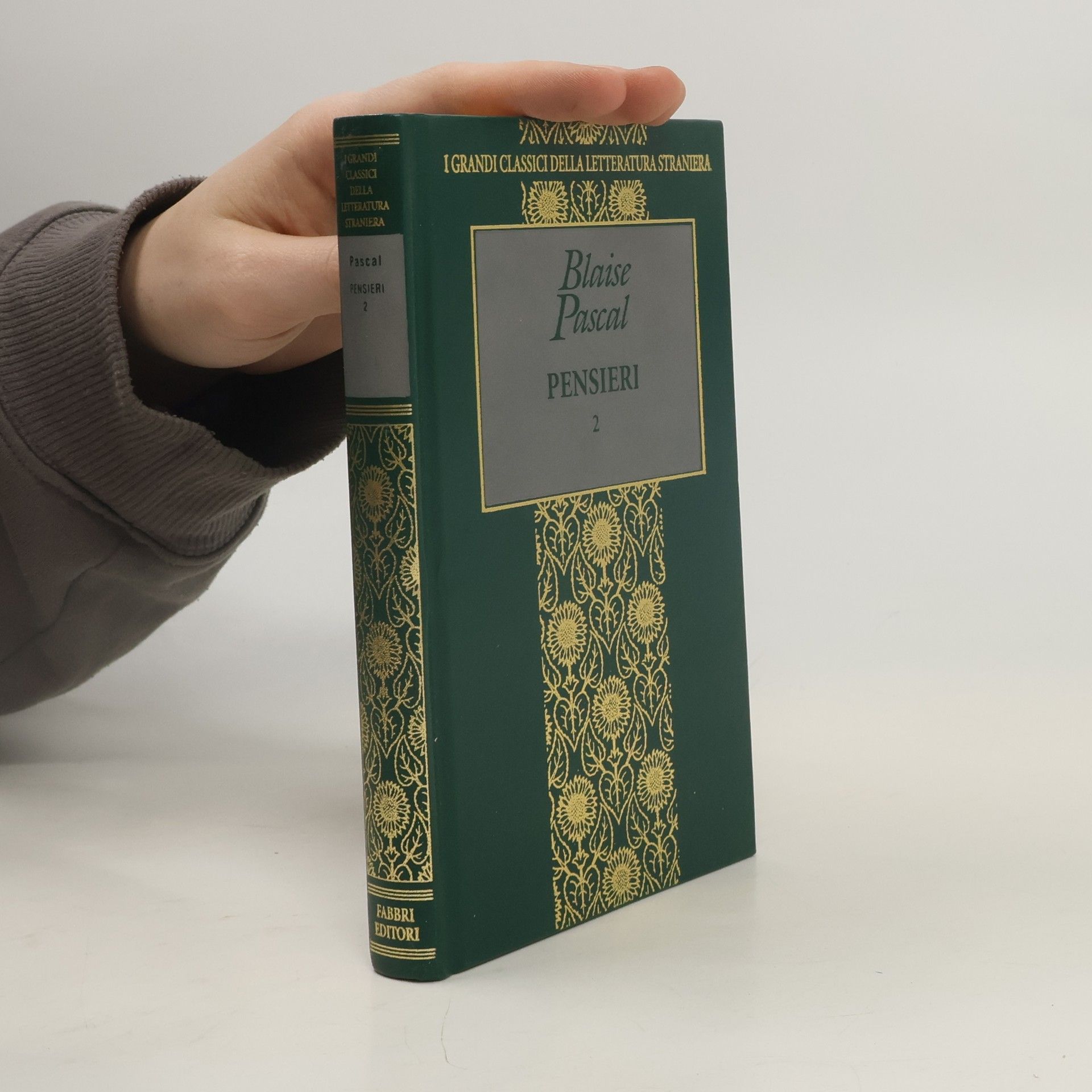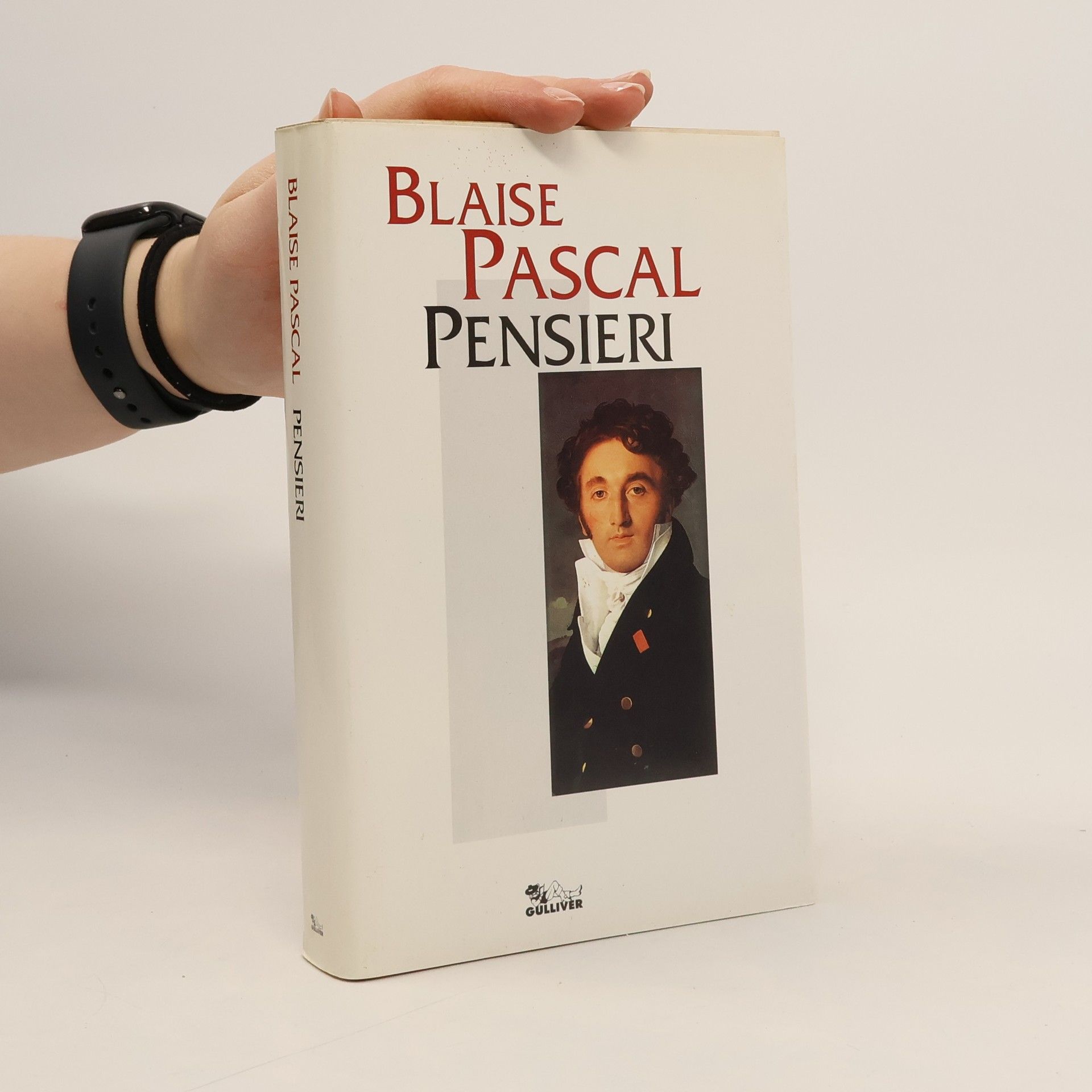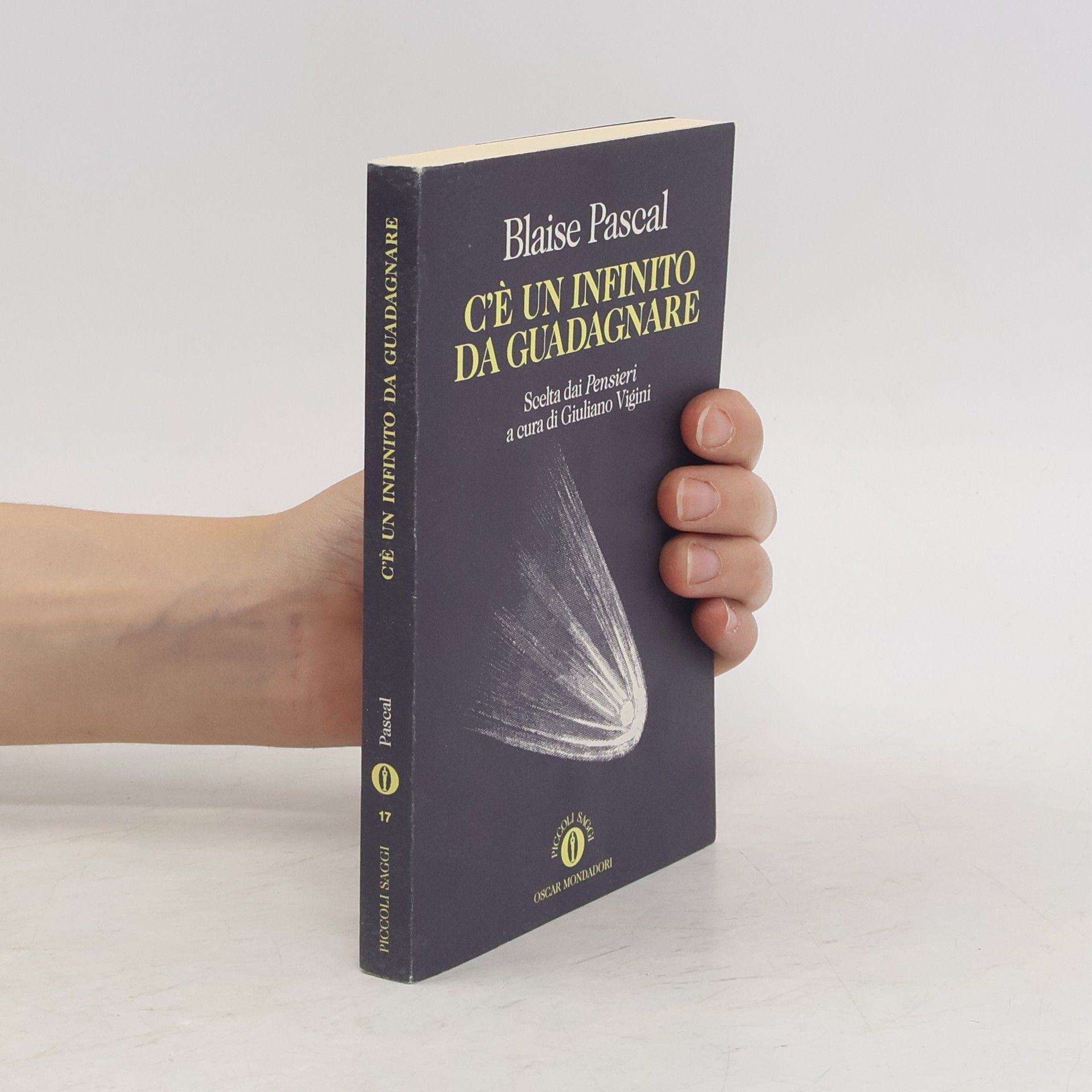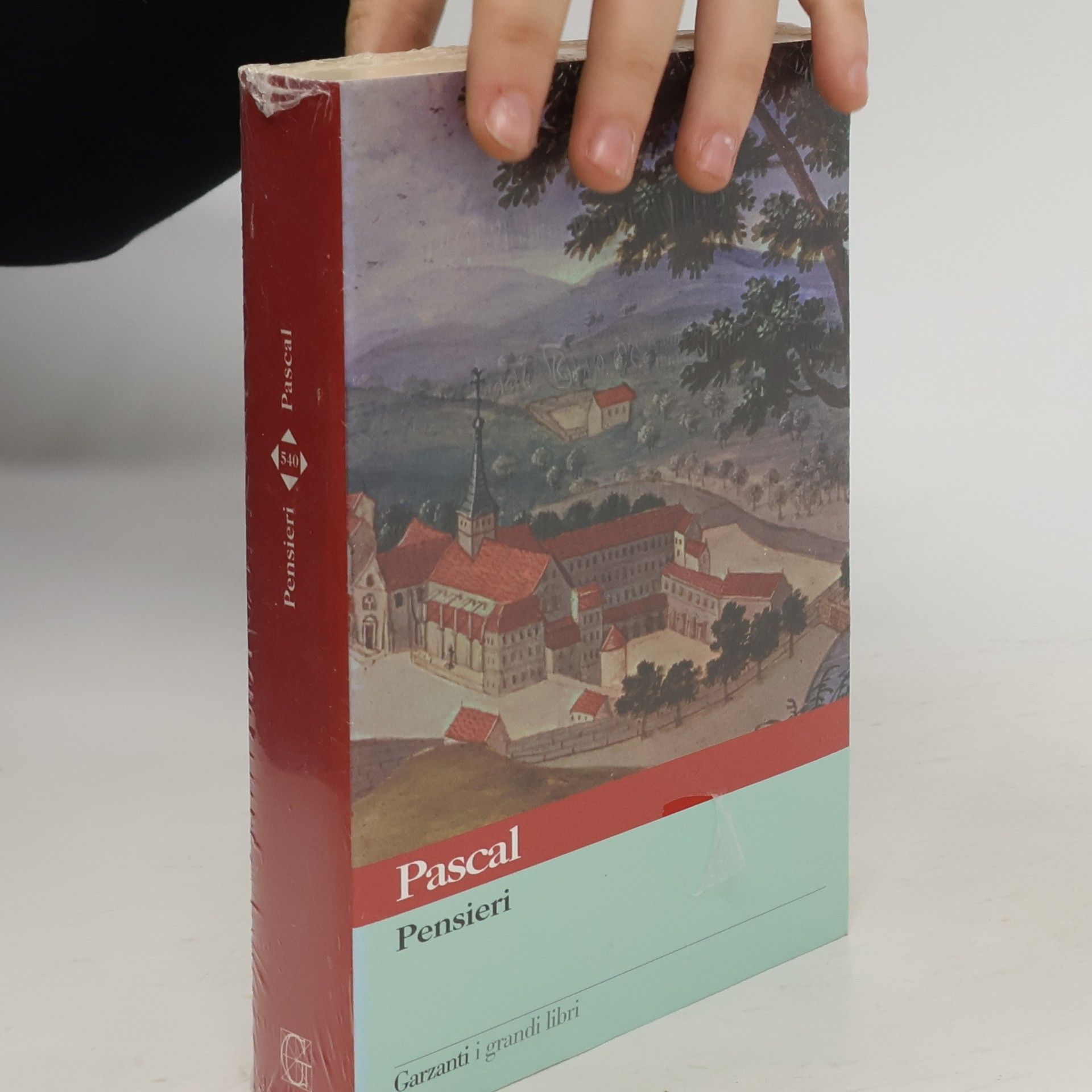Pensieri
- 517pagine
- 19 ore di lettura
Blaise Pascal fu un matematico e filosofo francese la cui opera approfondì sia l'indagine scientifica che la contemplazione teologica. Insieme a Pierre de Fermat, pose le basi della teoria della probabilità. Una profonda conversione spirituale nella fase avanzata della sua vita reindirizzò il suo intelletto verso la teologia, portando alla creazione delle sue celebri Lettere Provinciali. Pascal è ampiamente riconosciuto per la sua Scommessa, un argomento filosofico riguardante la scelta razionale di credere nell'esistenza di Dio.







scelta dai Pensieri
The work features curated selections from Pascal's Pensées, offering insights into his philosophical and theological reflections. Known for its profound exploration of faith, reason, and the human condition, the text delves into existential questions and the nature of belief. This English translation makes Pascal's influential ideas accessible to a wider audience, highlighting his unique perspective on life's complexities.
A collection of philosohical fragments, notes and essays in which the author explores the contradictions of human nature in pscyhological, social, metaphysical and - above all - theological terms.
The book is a facsimile reprint of a scarce antiquarian work, preserving its historical significance despite potential imperfections like marks and notations. It aims to protect and promote important literature by providing affordable, high-quality modern editions that remain faithful to the original text.
For much of his life Pascal (1623-62) worked on a magnum opus which was never published in its intended form. Instead, he left a mass of fragments, some of them meant as notes for the Apologie. These were to become known as the Pensées, and they occupy a crucial place in Western philosophy and religious writing. This translation is the only one based on the Pensées as Pascal left them. It includes the principal dossiers classified by Pascal, as well as the essential portion of the important Writings on Grace.
Exploring profound themes of theology and philosophy, this collection features fragments that reflect Blaise Pascal's deep insights and intellectual struggles. Written in the 17th century, it encapsulates his thoughts on faith, reason, and the human condition, showcasing his unique perspective as both a philosopher and mathematician. The work serves as a significant contribution to existential thought and continues to resonate with readers seeking to understand the complexities of belief and existence.